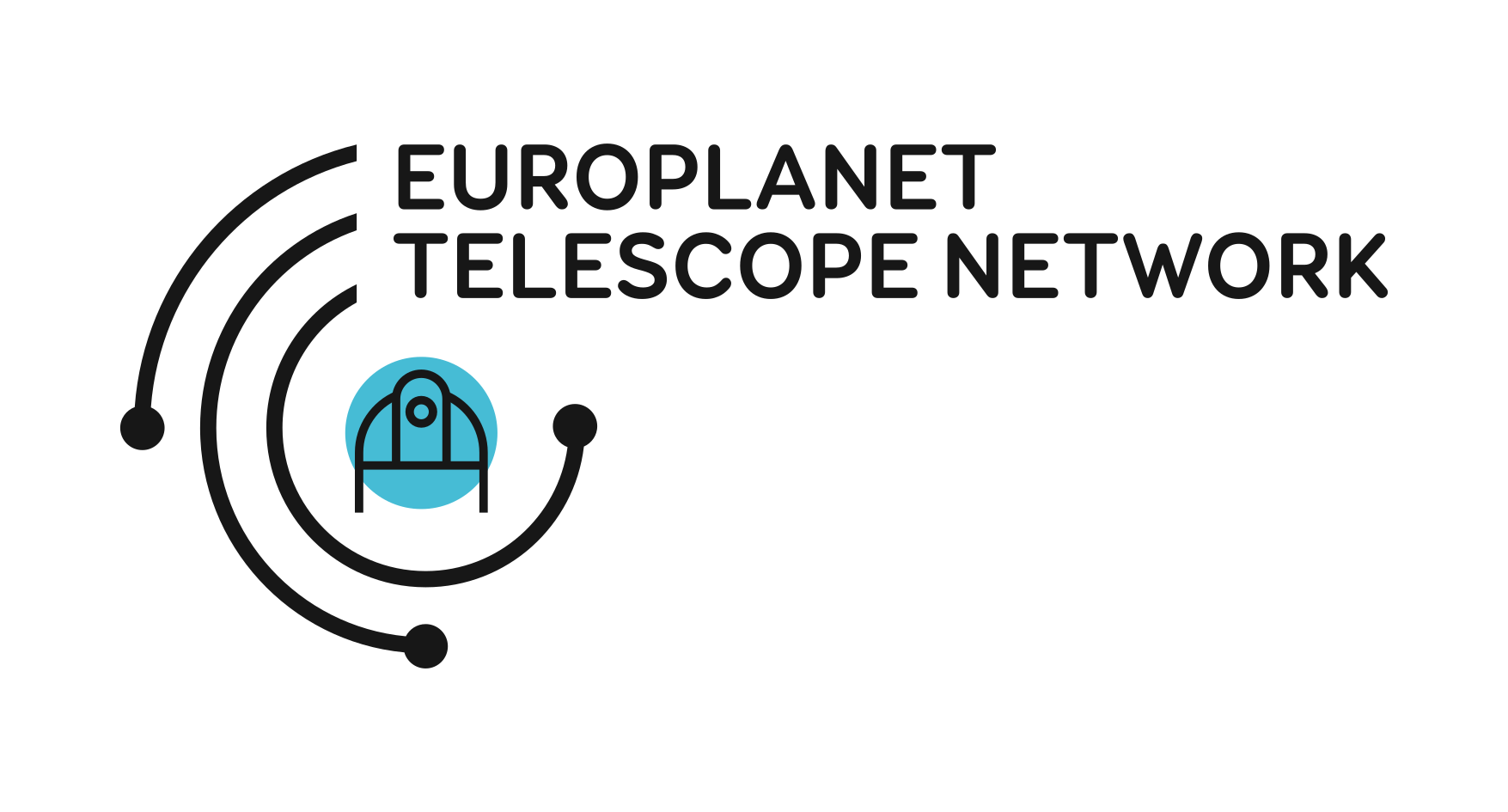Europlanet Telescope Network launched to support planetary research and build global pro-am collaboration
A new collaboration between telescopes around the world has been launched to provide coordinated observations and rapid responses in support of planetary research. The Europlanet Telescope Network will provide professional and trained amateur observers with access to telescopes located around the globe and ranging from 0.25 – 2m in diameter.
Initially linking 15 observatories, the network plans to draw in additional facilities and build new collaborations, particularly in geographical regions that are currently under-represented in the planetary science community.
The study of planets, asteroids and comets can require long-term monitoring or very precise timing by ground-based observatories. This combination of characteristics produces a unique set of challenges, as it matters both where on the Earth one observes from and precisely when.
“Relatively small telescopes can produce first-rate planetary science,” said Manuel Scherf, the coordinator of the Europlanet Telescope Network. “Our aim with this new network is to support a global community that can react fast and effectively to observational alerts and participate in coordinated observational campaigns related to objects in our Solar System and planets orbiting distant stars.”
Examples of research that could be supported via the network include monitoring of how atmospheric features on planets evolve, or how a comet’s activity changes as it orbits the Sun. The network will also be used in studies that require significant amounts of observing time, like searches for lunar impact flashes, and observations from multiple locations simultaneously, such as to reveal the size, shape and orbit of asteroids that might be hazardous to Earth.
“As planets and smaller bodies of our Solar System move against the background of distant stars, we can gather information about their physical properties and orbits,” explained Colin Snodgrass of the University of Edinburgh, deputy coordinator of the network and chair of its scientific advisory board. “A network of telescopes that can make long-term or time-sensitive observations from different locations across Europe and beyond will be very valuable for planetary astronomy.”
Professional and amateur astronomers can now apply to visit the facilities participating in the Europlanet Telescope Network and have their expenses covered for the time needed to make their observations, which can range from hours to several weeks. Visits will start from the autumn, subject to any local travel restrictions due to the Covid-19 pandemic. The project is coordinated through the Europlanet 2024 Research Infrastructure, which is funded by the European Commission’s Horizon 2020 programme.
Grazina Tautvaisiene, Director of the Institute of Theoretical Physics and Astronomy in Lithuania, said, “There are many small telescopes in facilities around the world, and particularly in Eastern Europe, that are under-used. By networking these diverse observatories, we can take advantage of their geographical spread and relative lack of time constraints to carry out exciting, cutting-edge research.”
The network also aims to strengthen collaborations between professional and amateur astronomers and provide training to widen participation in planetary research.
“Amateur astronomers are playing an increasingly important role in planetary research and in supporting missions to study objects in our own Solar System and planets orbiting other stars. The Europlanet Telescope Network aims to empower skilled amateurs to use professional facilities and to participate in international campaigns,” said Ricardo Hueso of the Universidad del País Vasco/Euskal Herriko Unibertsitatea.
The observatories participating in the project are:
- Pic du Midi Observatory, IMCCE, Observatoire de Paris, CNRS, France: 1.06m-telescope
- Moletai Astronomical Observatory, Vilnius University, Institute of Theoretical Physics and Astronomy, Lithuania: 1.65m-telescope and 35/51cm-telescope
- Kryoneri Observatory, National Observatory of Athens, Greece: 1.2m-telescope
- Skalnate Pleso Observatory, Astronomical Institute of the Slovak Academy of Sciences, Slovakia: 1.3m-telescope and 61cm-telescope
- Faulkes Telescope Project, UK (accessing the Las Cumbres Observatory, LCO, global network): Two 2m-robotic telescopes, nine 1m-robotic telescopes, and ten 40cm-robotic telescopes
- Tartu Observatory, University of Tartu, Tartu Observatory, Estonia: 1.5m telescope, 60cm telescope, 30cm robotic telescope
- Danish 1.54m telescope at ESO La Silla Observatory (Chile), Copenhagen University, Niels Bohr Institute, Denmark: 1.54m mirror telescope
- Beacon Observatory, University of Kent, UK: 42cm remote controllable astrograph
- Observatorie del Teide, Instituto de Astrofisica de Canarias, Spain : 82cm IAC-80 telescope, 45cm telescope
- Calar Alto Observatory, Junta de Andalucia and the Instituto de Astrofisica de Andalucia, Spain : 1.23m telescope
- Lisnyky Observation Station, AO KNU, Ukraine: 70cm telescope
- Chuguev Observatory, Institute of Astronomy of V.N. Karazin Kharkiv National University, Ukraine: 70cm telescope
- Terskol Peak Observatory, International Center for Astronomical, Medical and Ecological Research of the National Academy of Sciences of Ukraine (IC AMER), Ukraine: 2m telescope, 60cm telescope
- Konkoly Observatory, Research Centre for Astronomy and Earth Sciences, Hungary: 1m telescope, 80cm telescope
- Rozhen Observatory, Institute of Astronomy and National Astronomical Observatory, Bulgarian Academy of Sciences, Bulgaria: 2m telescope, 60cm telescope, 50/70cm telescope
- Observatorio Astrofísico de Javalambre, Centro de Estudios de Física del Cosmos de Aragón (CEFCA), Spain, 80 cm telescope.
Europlanet Telescope Network: https://www.europlanet-society.org/europlanet-2024-ri/europlanet-telescope-network/
Images
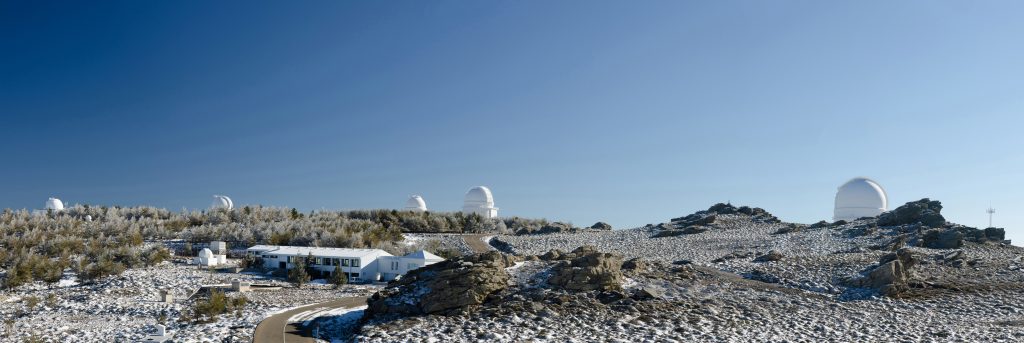
Full resolution image
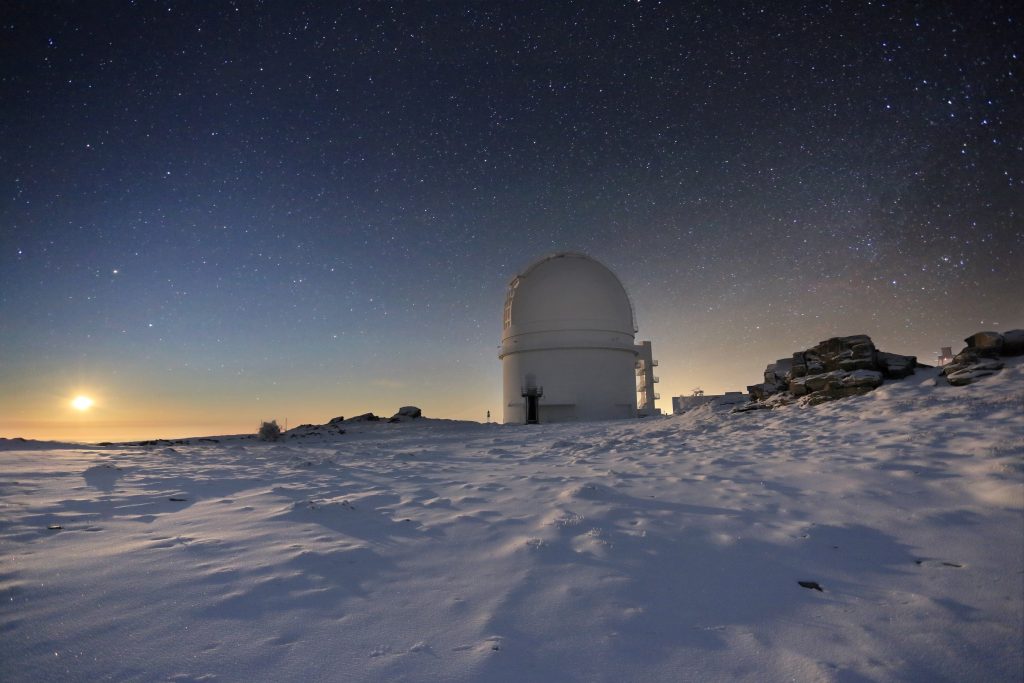
Full resolution image
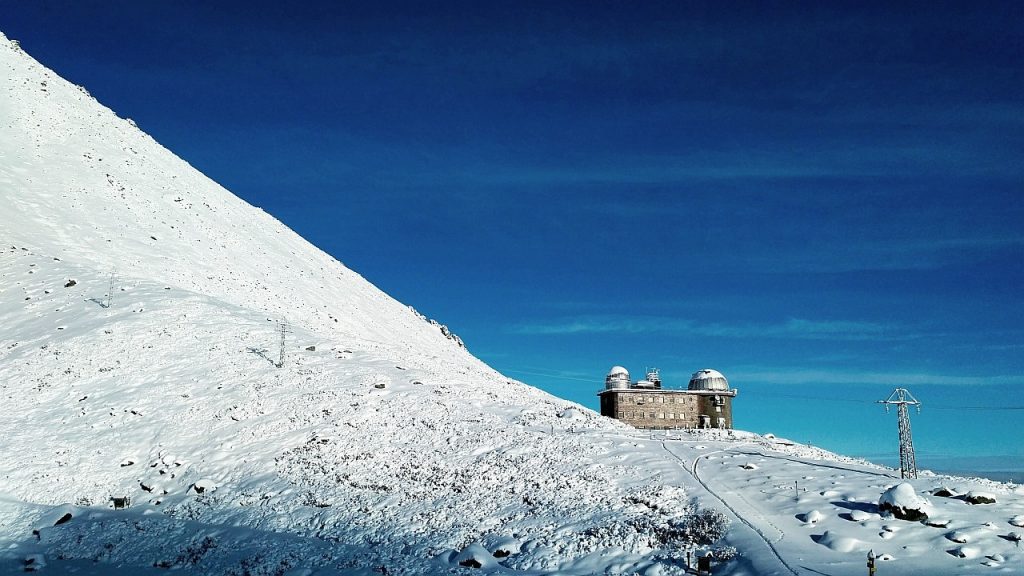
Full resolution image
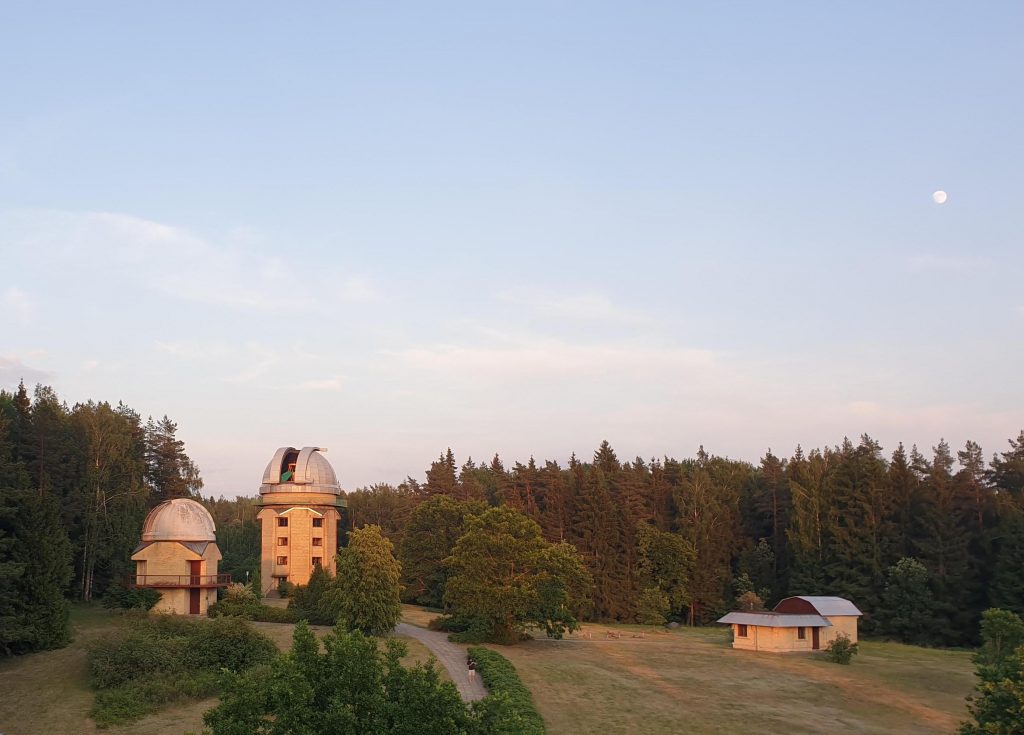
Full resolution image
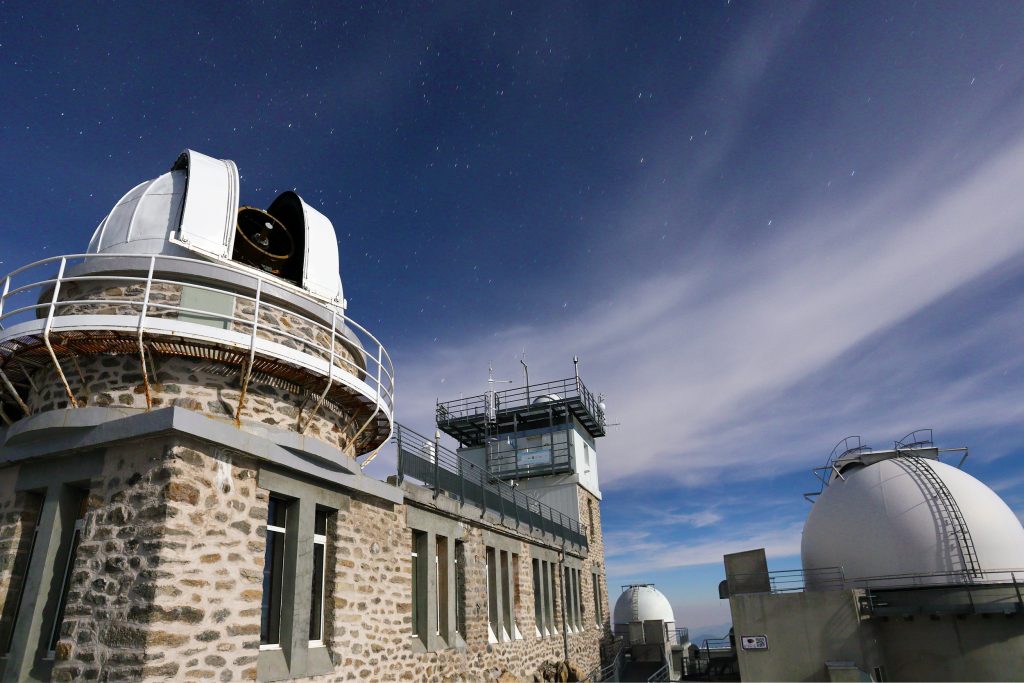
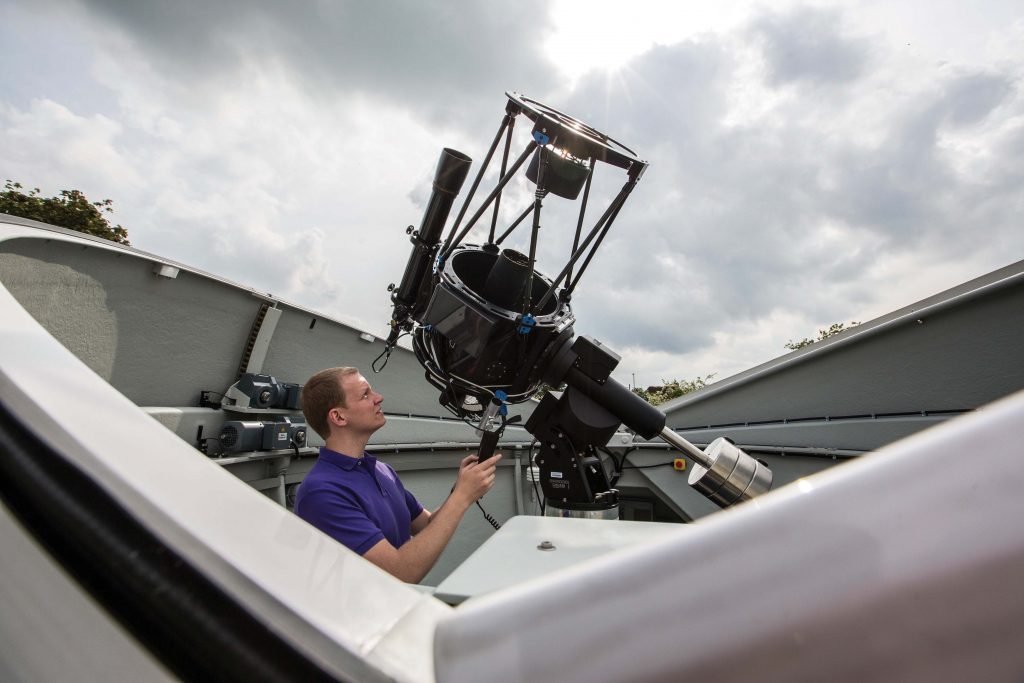
Full resolution image

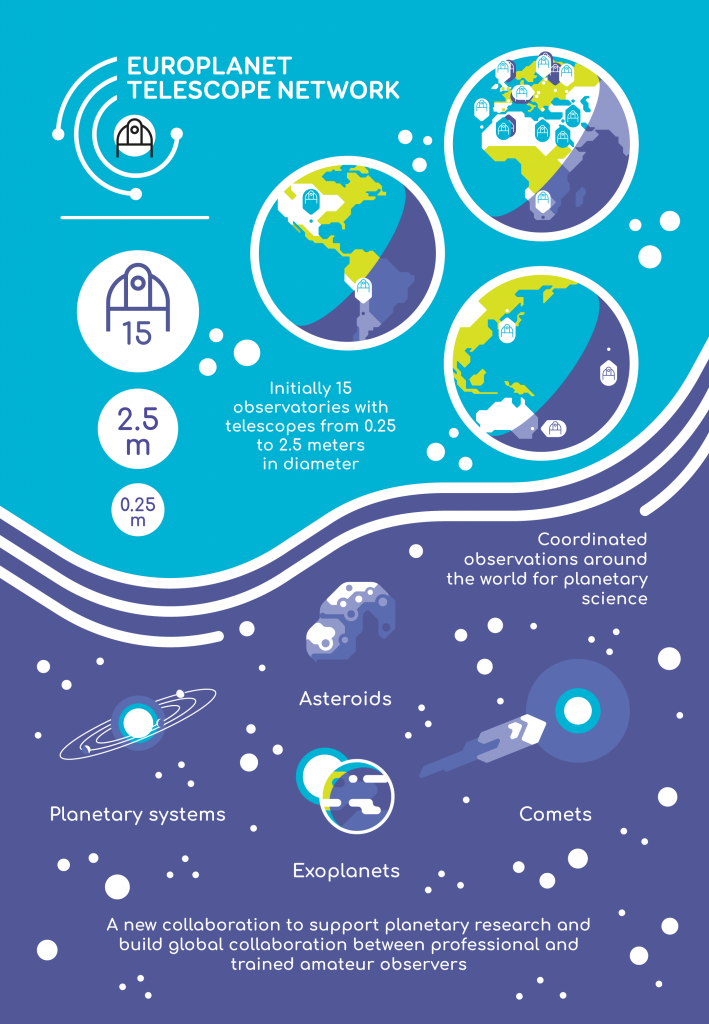
Full resolution infographic
Science Contacts
Günter Kargl
Space Research Institute
Austrian Academy of Sciences
Graz, Austria
na2@europlanet-society.org
Gražina Tautvaišienė
Institute of Theoretical Physics and Astronomy
Vilnius University
Vilnius, Lithuania
grazina.tautvaisiene@tfai.vu.lt
Ricardo Hueso Alonso
Escuela Técnica Superior de Ingeniería
Universidad del País Vasco/Euskal Herriko Unibertsitatea
Bilbao
ricardo.hueso@ehu.eus
Media Contact
Anita Heward
Europlanet Media Centre
Tel: +44 7756 034243
anita.heward@europlanet-eu.org
About Europlanet
Since 2005, Europlanet has provided Europe’s planetary science community with a platform to exchange ideas and personnel, share research tools, data and facilities, define key science goals for the future, and engage stakeholders, policy makers and European citizens with planetary science.
The Europlanet 2024 Research Infrastructure (RI) has received funding from the European Union’s Horizon 2020 research and innovation programme under grant agreement No 871149 to provide access to state-of-the-art research facilities and a mechanism to coordinate Europe’s planetary science community. The project builds on a €2 million Framework 6 Coordination Action (EuroPlaNet), a €6 million Framework 7 Research Infrastructure (Europlanet RI) and a €10 million Horizon 2020 Research Infrastructure (Europlanet 2020 RI) funded by the European Commission.
The Europlanet Society promotes the advancement of European planetary science and related fields for the benefit of the community and is open to individual and organisational members. The Society’s aims are:
- To expand and support a diverse and inclusive planetary community across Europe through the activities of its 10 Regional Hubs.
- To build the profile of the sector through outreach, education and policy activities
- To underpin the key role Europe plays in planetary science through developing links at a national and international level.
Europlanet 2024 RI project website: www.europlanet-2024-ri.eu
Europlanet Society website: www.europlanet-society.org
Follow on Twitter via @europlanetmedia

